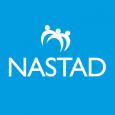Each year, on December 1, the world unites to commemorate World AIDS Day. This day is dedicated to recognizing the ongoing fight to end the HIV/AIDS epidemic and honoring the lives of those we have lost. In 2023, there were nearly 40 million people living with HIV worldwide with an estimated 1.3 million individuals acquiring HIV globally that year. Over the years, there has been a global commitment to addressing the HIV/AIDS epidemic by decreasing new HIV infections and increasing access to HIV prevention, care, and treatment. The UNAIDS Global AIDS Strategy established the “95-95-95” targets: 95% of people living with HIV should know their status, 95% of those aware of their HIV-positive status should receive lifesaving antiretroviral treatment, and 95% of those on treatment should achieve viral suppression. Significant progress has been made toward these goals, thanks to advancements in technology and medicine. By 2023, new HIV infections had decreased by 39% since 2010 and by 60% since the peak of the HIV/AIDS epidemic in 1995. While the response to the epidemic is moving in the right direction, there is still much more progress that needs to be made to ensure all communities are receiving equitable HIV prevention, care, and treatment resources. Black women are disproportionately impacted by HIV worldwide and experience barriers in accessing HIV resources and services. In 2023, 44% of all new HIV infections globally were among women and girls. In 2021, Black women accounted for 54% of new HIV infections in U.S. women, despite Black women making up less than 15% of the U.S. female population.
Each year, NASTAD’s Board Chair issues a challenge to the NASTAD membership to move NASTAD forward in its mission to end the HIV and hepatitis epidemics. This year’s challenge, titled “Black Women and BIPOC Leaders: Breaking Barriers, Building Bridges”, calls on health departments to prioritize and center Black women in HIV prevention, care, and treatment programming. It is imperative that Black women are not treated as a monolithic entity, and different strategies are developed to best serve the myriads of identities within this community. It is vital that the global response to HIV/AIDS includes strategies that focus on increasing access to HIV testing, PrEP, and linkage to care and treatment among Black women worldwide.
Additionally, it is essential for Black women to lead conversations and decisions that impact them, domestically and abroad. This year’s Chair’s Challenge calls on health departments to increase representation of Black women and BIPOC individuals in leadership roles. To address the HIV/AIDS epidemic, the communities that are disproportionately impacted by it must be represented in leadership and have a voice in decision-making. There is a critical need for Black women to have a seat at the table and have opportunities to highlight their lived experiences, provide subject matter expertise, and make informed decisions about programs and policies that impact their health.
There is a global commitment to ending the HIV/AIDS epidemic, and it is vital that Black women worldwide are prioritized in that work. As quoted by Malcolm X, “The most disrespected person in America is the Black woman. The most unprotected person in America is the Black woman. The most neglected person in America is the Black woman.” The time is now to protect and prioritize the lives of Black women.
For related resources, visit the links below:
- 2024-2025 Chair’s Challenge - “Black Women and BIPOC Leaders: Breaking Barriers and Building Bridges”
- NASTAD’s Anti-Racism Work
- World AIDS Day








Comments
Comments